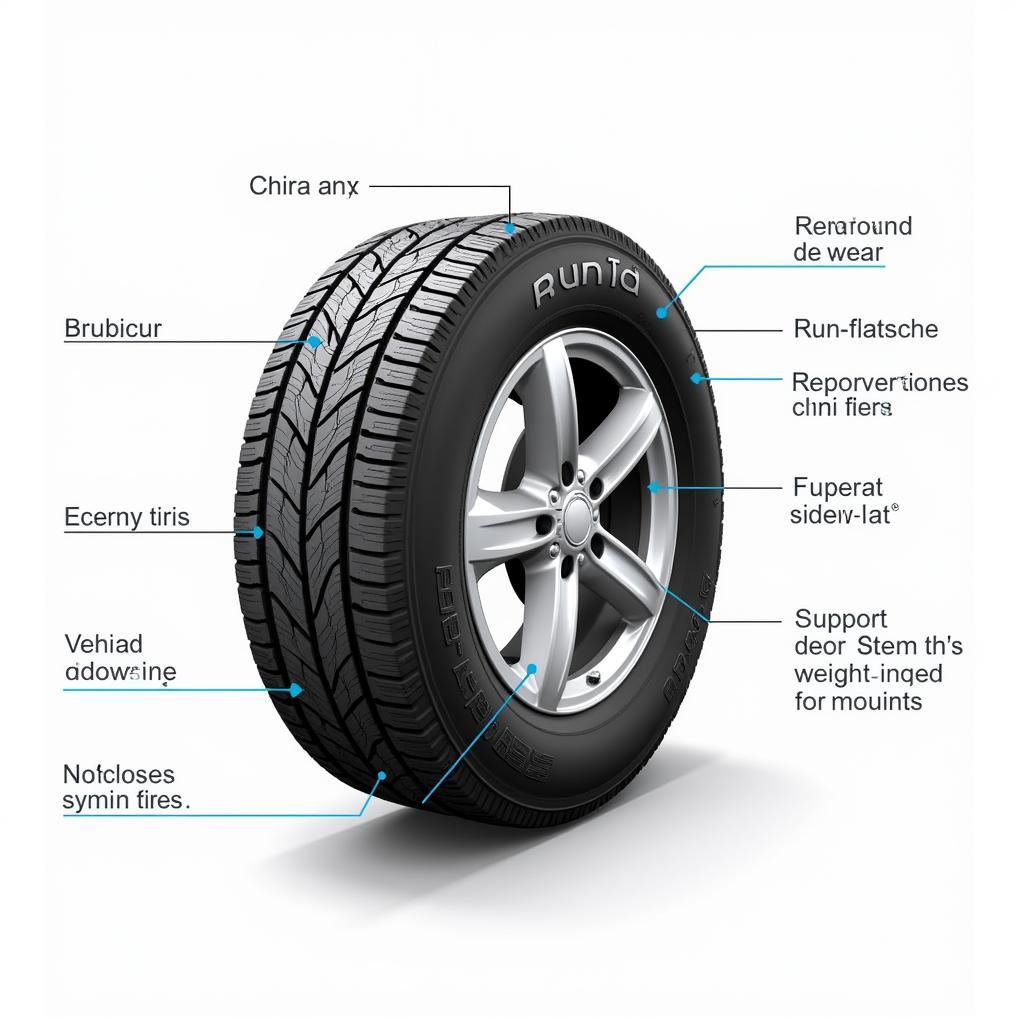Keeping your vehicle running smoothly requires attention to all its parts, and tires are no exception. Understanding the ins and outs of tire technology and the related auto services can significantly impact your vehicle’s performance, safety, and longevity. This comprehensive guide explores everything you need to know about tire tech and auto services, equipping you with the knowledge to make informed decisions for your vehicle.
The Vital Role of Tire Technology
Your tires are the only point of contact between your vehicle and the road, playing a crucial role in acceleration, braking, steering, and overall comfort. Tire technology has advanced considerably, with modern tires incorporating sophisticated designs and materials to enhance these aspects.
Tire Types and Their Applications
Different driving conditions and vehicle types demand specific tire characteristics.
-
Summer tires: Designed for optimal grip and handling on dry and wet roads in warm weather. They feature shallower tread depths and a harder rubber compound that softens in heat, maximizing road contact.
-
Winter tires: Engineered for superior traction and control on snow and ice. They boast deeper, more intricate tread patterns and a softer rubber compound that stays pliable in freezing temperatures, providing enhanced grip.
-
All-season tires: Offering a compromise between summer and winter tires, they provide acceptable performance in various weather conditions. However, they may not excel in extreme heat or snow like their specialized counterparts.
-
Run-flat tires: These tires feature reinforced sidewalls that allow you to continue driving for a limited distance, even after a puncture. Run-flat tires provide added safety and convenience, eliminating the need for immediate roadside tire changes.
 Run-flat Tire Construction
Run-flat Tire Construction
Understanding Tire Markings
The sidewall of your tire contains a wealth of information encoded in a series of letters and numbers. Understanding these markings can help you choose the right tires for your vehicle and driving habits. Key information includes:
-
Tire size: Indicated by a code like “225/45 R17,” where 225 represents the tire width in millimeters, 45 is the aspect ratio (height-to-width ratio), R stands for radial construction, and 17 refers to the wheel diameter in inches.
-
Load index: A numerical code representing the maximum weight a tire can carry at a specified pressure.
-
Speed rating: A letter code indicating the maximum speed a tire is designed to withstand for a prolonged period.
Essential Auto Services Related to Tires
Proper tire maintenance is essential for optimal performance, safety, and tire longevity.
Tire Pressure Monitoring System (TPMS)
The TPMS is a crucial safety feature that alerts you when one or more of your tires are significantly underinflated. Regular TPMS checks and sensor maintenance are vital to ensure this system functions correctly, providing timely warnings and preventing potential hazards on the road.
Wheel Alignment
Wheel alignment ensures that your wheels are pointing in the correct direction and are parallel to each other. Misaligned wheels can lead to uneven tire wear, reduced fuel efficiency, and handling problems. Regular wheel alignment checks and adjustments, especially after hitting potholes or curbs, can help optimize tire life and vehicle performance.
Tire Rotation
Tires wear differently depending on their position on the vehicle. Regular tire rotation, typically every 5,000 to 8,000 miles, helps even out this wear pattern, extending the life of your tires and ensuring consistent performance.
Tire Balancing
Tire balancing compensates for any weight imbalances in the tire and wheel assembly. Unbalanced tires can cause vibrations, leading to discomfort, premature tire wear, and potential suspension damage. Getting your tires balanced when you get new tires installed or after a tire repair is crucial for a smooth and comfortable ride.
Conclusion
Understanding tire technology and the associated auto services is essential for every car owner. By staying informed about tire types, maintenance, and related services, you can make informed decisions that enhance your safety, optimize your vehicle’s performance, and extend the life of your tires. Regular checks and timely maintenance from a trusted auto service provider are vital investments in your vehicle’s well-being and your peace of mind.
Frequently Asked Questions
1. How often should I check my tire pressure?
It’s best to check your tire pressure at least once a month and before long road trips.
2. What are the signs of misaligned wheels?
Uneven tire wear, a vehicle pulling to one side, and a crooked steering wheel are common signs of misaligned wheels.
3. How long do winter tires last?
The lifespan of winter tires varies depending on usage and storage conditions. However, it’s generally recommended to replace them every 3 to 4 seasons.
4. What should I do if my TPMS light comes on?
If your TPMS light illuminates, check your tire pressure immediately. If the light stays on or flashes, it indicates a potential issue with the TPMS system itself, requiring professional inspection.
5. Why is tire rotation important?
Tire rotation ensures even tire wear, extending tire life and promoting consistent vehicle handling.
Need help with your tire tech and auto services? Contact us via WhatsApp: +1(641)206-8880, or Email: [email protected]. Our dedicated team is available 24/7 to assist you.

Leave a Reply